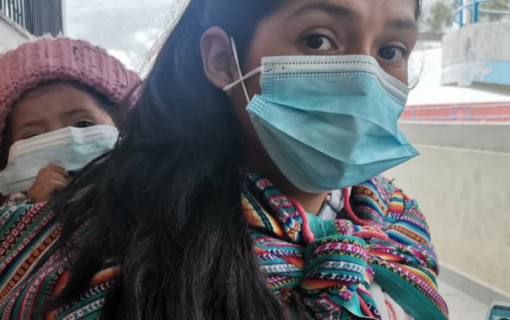Republic of the Congo Pre-Election Assessment Report, December 1, 1991
EXECUTIVE SUMMARY
During the month of February 1991, political leaders in the Republic of the Congo, with strong popular support, mobilized to reject the existing single-party Marxist-Leninist state and to take the first in a series of steps designed to establish a competitive multi-party democracy. They embraced an open economy and rejected the one-party model of government. In a remarkable demonstration of concerted public action, the National Conference, which had been set up to consider modifications to the system, turned itself into a national forum demanding democracy and accountability. The Conference asserted its autonomy from the existing government, broke with the authoritarianism of the past, and established a process of consultation with citizens throughout the country.
These actions opened a free and lively debate on the future of the Congo. In the process, civil rights were restored, the rule of law was reinstated, the army was neutralized, and the forces of repression were either controlled or disbanded. The head of state, President Denis Sassou-Nguesso was reduced to a mere figurehead, and during November 1991, had his indemnity from prosecution lifted. He too would be held accountable for his actions in the past.
The transition government, headed by Prime Minister Andre Milongo, moved quickly to write a new constitution and democratic electoral code, and to prepare the way for a referendum on a new constitution designed to bring multi-party democracy to the Congo. All this was done in a thoughtful, peaceful manner. In the course of this effort, the Government of the Congo requested assistance for the democratization process from the United States. That request resulted in a decision to send a team of election experts from the International Foundation for Electoral Systems (IFES) to the Congo in late October and early November 1991 to perform a Pre-Election Assessment. The team was composed of Dr. Fred M. Hayward, a specialist on African politics and elections, and Paul D. Landry, Assistant Chief Electoral Officer in New Brunswick, Canada.
The team concentrated its initial efforts on:
· The preparation of voter registration lists since those were essential to the planned Referendum on the new Constitution;
· Civic education about the Constitution and the electoral process.
That work convinced the team that some immediate assistance was vital to the success of the Congolese government efforts and the team made an interim recommendation for partial funding which was forwarded to IFES in Washington (Appendix A). The team next turned its attention to other elements of our charge including:
· Preparations in the Regions for elections and political competition;
· Technical and personnel needs outside of Brazzaville;
· Technical and procedural matters relating to elections;
· Political parties and pressure groups;
· The role of women in politics; • Systems of voting;
· The ballot(s); and
· The context for multi-party democracy
The IFES team comes away from its mission to the Congo impressed both by the progress made and the quality of the leadership of the democratization effort both inside and outside the government. The team also sees the urgent need to provide assistance in this effort if it is to remain on track in a way that facilitates the establishment of an open multi-party democracy within the designated time period ending in June 1992. The officials assigned to work on elections and on civic education were dedicated and well trained. With the proper tools they have excellent prospects for success.
The team reviewed government documents pertaining to the transition to democracy, including a draft of the proposed Constitution, final drafts of the Electoral Code, instructions for registration of voters, and a host of other internal government documents relating to elections and democratization. The team found the documents to be of high quality and of unreservedly democratic content, and found strong commitment of government and non-government personnel to make the system work. Nonetheless, both the limits of time and the extreme financial constraints put the whole process in a precarious position if assistance is not forthcoming. Unlike many other states, the Congo has in place both the personnel and the infrastructure to make the system work well. What is essential is assistance to insure that the process operates effectively in the very short time left. The team suggested immediate assistance with electoral communication and civic education in its preliminary report (see Appendix A.) Providing such assistance is one important way the United States can make an impact which is quick, effective, and critical to the success of this democratic effort.
Recent political changes in the Congo are being watched with great interest elsewhere in Africa and its successes or failures will have a major influence on other African states far beyond what would be expected of a state of its size. If democratization succeeds, it will be an influential model for those individuals and parties in neighboring states, including Zaire, who are committed to democratic change. If it fails, it will be used as proof by those like Presidents Moi and Rawlings (of Kenya and Ghana) who argue that democracy is inappropriate for Africa.









